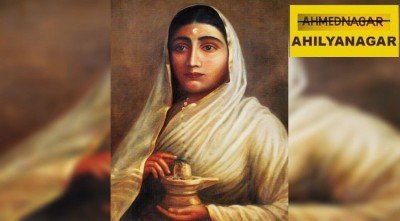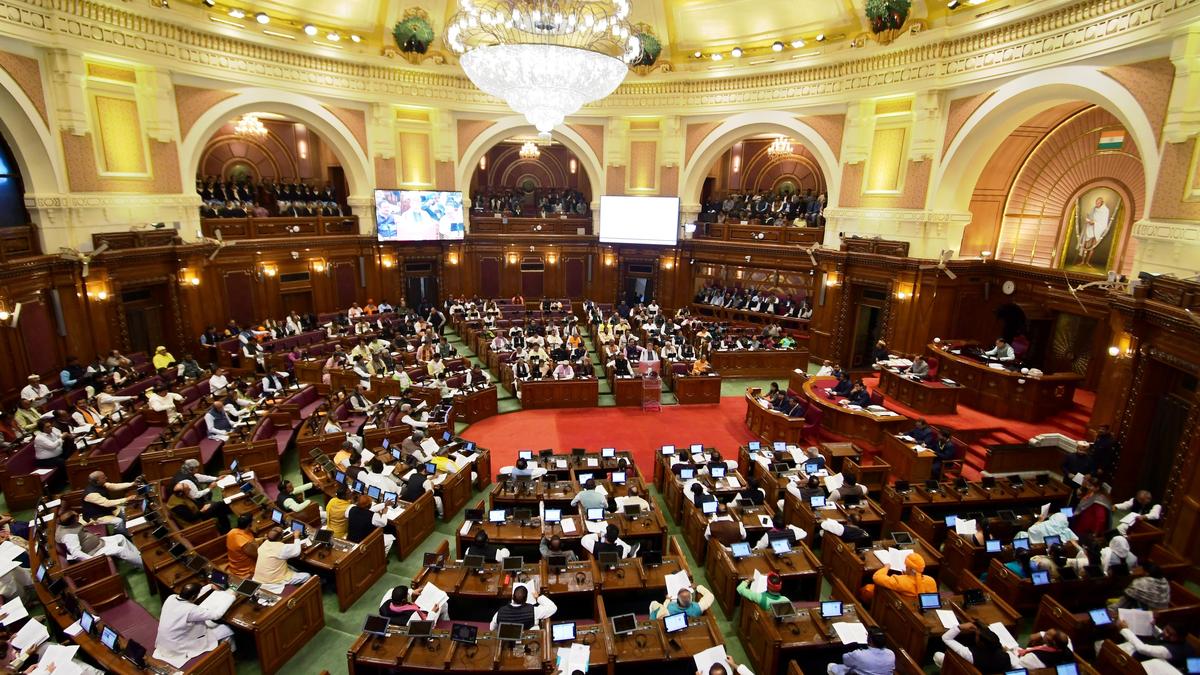Maharashtra Renames Ahmednagar as Ahilyanagar
The Maharashtra government has officially renamed Ahmednagar district to Ahilyanagar, in honor of the renowned 18th-century Maratha queen Ahilyabai Holkar. This decision was announced by Chief Minister Uddhav Thackeray, paying homage to the significant historical figure and aiming to commemorate her contributions to the region.
Ahilyabai Holkar, also known as the Philosopher-Queen, was a visionary ruler known for her administrative acumen, social reforms, and architectural patronage. She governed the Malwa kingdom in the present-day state of Madhya Pradesh and parts of Maharashtra, contributing immensely to the welfare and development of her subjects.
This renaming decision has sparked various reactions, with many praising the government’s move to honor Ahilyabai Holkar’s legacy. Supporters argue that renaming the district after her is a fitting tribute to her unparalleled leadership and impact on society. Critics, however, raise concerns about the practical implications of changing the district’s name and the potential administrative challenges it may entail.
Despite the debates surrounding the decision, renaming Ahmednagar to Ahilyanagar is a significant step in preserving and celebrating Maharashtra’s rich cultural heritage and historical legacy. It serves as a reminder of the enduring influence of remarkable leaders like Ahilyabai Holkar, whose contributions continue to inspire generations.

Why this News is important
The decision to rename Ahmednagar district as Ahilyanagar holds immense significance as it pays tribute to Ahilyabai Holkar, a prominent historical figure renowned for her exemplary leadership and contributions to society. By renaming the district after her, the Maharashtra government acknowledges her enduring legacy and seeks to preserve her memory for future generations.
This news underscores the importance of preserving and celebrating Maharashtra’s rich cultural heritage. Ahilyabai Holkar’s reign represents a crucial period in the region’s history, marked by significant social reforms and architectural advancements. Renaming the district after her serves as a reminder of the state’s illustrious past and its enduring cultural legacy.
Historical Context
Ahilyabai Holkar, also known as the Philosopher-Queen, was a revered ruler who governed the Malwa kingdom in the 18th century. She ascended to the throne in 1767 following the death of her husband, Malhar Rao Holkar. Ahilyabai’s reign was characterized by enlightened governance, social reforms, and patronage of the arts and architecture.
During her rule, Ahilyabai implemented various measures aimed at promoting social welfare and justice. She abolished discriminatory practices and ensured the equitable distribution of resources among her subjects. Ahilyabai’s administration was marked by fairness, compassion, and a commitment to the well-being of her people.
In addition to her administrative prowess, Ahilyabai was a notable patron of architecture and culture. She commissioned the construction of numerous temples, ghats, and public buildings, leaving behind a lasting architectural legacy that continues to be admired today.
5 Key Takeaways from “Maharashtra Renames Ahmednagar as Ahilyanagar”
| Serial Number | Key Takeaway |
|---|---|
| 1. | Ahmednagar district in Maharashtra has been renamed as Ahilyanagar in honor of Ahilyabai Holkar, a renowned historical figure. |
| 2. | Ahilyabai Holkar was a visionary ruler known for her administrative acumen, social reforms, and architectural patronage. |
| 3. | The renaming decision aims to celebrate Maharashtra’s rich cultural heritage and honor the contributions of remarkable leaders like Ahilyabai Holkar. |
| 4. | While the decision has been widely praised for its historical significance, it has also sparked debates regarding its practical implications and administrative challenges. |
| 5. | Renaming Ahmednagar to Ahilyanagar serves as a reminder of the enduring influence of Ahilyabai Holkar and her impact on society. |
Important FAQs for Students from this News
Q: Why was Ahmednagar district renamed to Ahilyanagar?
A: The Ahmednagar district was renamed to Ahilyanagar to honor the renowned 18th-century Maratha queen, Ahilyabai Holkar, for her significant contributions to the region and her exemplary leadership.
Q: Who was Ahilyabai Holkar, and why is she important?
A: Ahilyabai Holkar was a visionary ruler known for her administrative acumen, social reforms, and architectural patronage. She governed the Malwa kingdom and parts of Maharashtra, leaving behind a lasting legacy of fair governance and cultural patronage.
Q: What impact does renaming Ahmednagar have on Maharashtra’s cultural heritage?
A: Renaming Ahmednagar to Ahilyanagar serves to celebrate Maharashtra’s rich cultural heritage by honoring historical figures like Ahilyabai Holkar, whose contributions continue to inspire generations.
Q: What are some of the challenges associated with renaming districts?
A: Renaming districts can pose administrative challenges such as updating official records, signage, and documentation. There may also be debates and discussions regarding the practical implications and historical significance of such decisions.
Q: How does the renaming of Ahmednagar district reflect on the current political climate in Maharashtra?
A: The renaming decision reflects the government’s efforts to acknowledge and honor historical figures while also sparking debates and discussions on the practical implications and significance of such decisions in the contemporary political landscape of Maharashtra.
Some Important Current Affairs Links

















